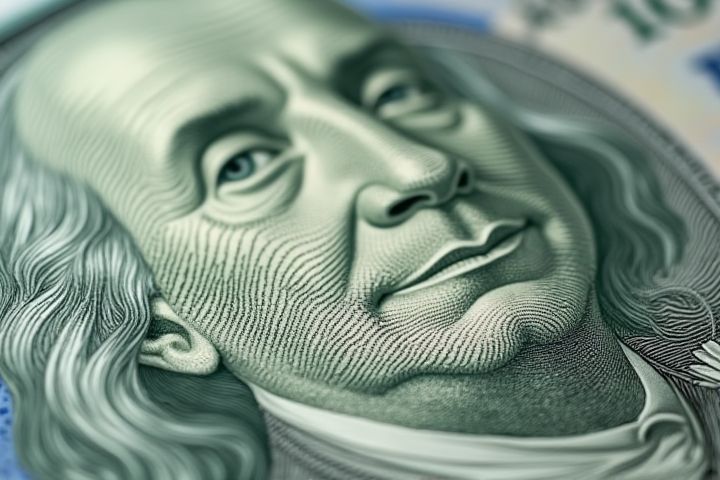
Nigeria's currency, the Naira (NGN), has experienced significant fluctuations against the US dollar (USD) due to various economic factors, including inflation and government monetary policies. As of October 2023, the exchange rate reflects the ongoing challenges within Nigeria's economy such as oil dependency and foreign exchange shortages. Understanding the current USD to NGN conversion rates is essential for travelers, investors, and businesses engaging in trade or investments in Nigeria. By monitoring the forex market, you can make informed financial decisions that could affect your purchasing power and investment opportunities. Regular updates and economic forecasts are crucial for navigating currency exchanges in Nigeria effectively.
Exchange Rate Volatility
Nigeria's exchange rate volatility significantly impacts the value of the US dollar against the Nigerian naira, influenced by factors such as oil prices, inflation rates, and foreign investment. The Central Bank of Nigeria (CBN) employs various interventions, including currency controls and foreign reserves management, to stabilize the exchange rate amidst fluctuating market conditions. As a result, businesses and consumers face challenges in pricing, budgeting, and planning, particularly in sectors heavily reliant on imports. Understanding these dynamics is crucial for investors, as the exchange rate volatility can affect returns on investments and overall economic stability in Nigeria.
Black Market Influence
The Nigerian economy experiences significant fluctuations in the US dollar exchange rate, heavily influenced by the black market. Due to limited access to foreign exchange through formal channels, many individuals and businesses turn to parallel markets where rates often exceed official ones. The disparity between the official and black market rates can lead to inflationary pressures, affecting the purchasing power of citizens. You may find that engaging in these markets can significantly impact both trade viability and financial stability in Nigeria.
Dual Exchange Rates
Nigeria's dual exchange rate system features both a market-driven rate and a controlled rate set by the Central Bank of Nigeria (CBN). This duality aims to stabilize the naira while managing foreign exchange supply, facilitating trade, and attracting foreign investment. The official rate primarily serves government and essential imports, while the parallel market rate often reflects the true market value of the naira against the US dollar. Understanding this system is crucial for investors and businesses looking to navigate Nigeria's complex foreign exchange environment effectively.
Oil Dependency
Nigeria's economy is heavily reliant on oil, with petroleum accounting for more than 90% of its export revenues. This dependence on oil exposes the country to volatility caused by fluctuating global oil prices, affecting the value of the Nigerian Naira against the US dollar. Efforts to diversify the economy are ongoing, yet challenges like insufficient infrastructure and reliance on imports continue to hinder progress. Understanding this dynamic is essential for investors and policymakers aiming to navigate Nigeria's financial landscape effectively.
Inflation Impact
Nigeria's economy faces significant challenges due to inflation, which has been exacerbated by fluctuations in the value of the US dollar. As the naira depreciates against the dollar, imported goods become more expensive, contributing to rising living costs and economic instability. Higher inflation rates can lead to decreased consumer purchasing power, affecting your daily expenses and savings. The government and Central Bank of Nigeria are implementing policies to stabilize the naira and mitigate the adverse effects of inflation on the economy.
Monetary Policy
Nigeria's monetary policy aims to stabilize the Nigerian Naira against the US dollar, ensuring currency stability and sustainable economic growth. The Central Bank of Nigeria (CBN) implements various tools, including interest rate adjustments, foreign exchange reserves management, and intervention in the foreign exchange market, to achieve this goal. Recent policies emphasize increasing dollar liquidity, which helps to control inflation and foster investor confidence. You can track these developments to understand the ongoing impact on Nigeria's economy and your investments.
Foreign Reserves
Nigeria's foreign reserves predominantly consist of US dollars, reflecting the nation's reliance on oil exports and foreign investments. As of October 2023, the central bank reported that Nigeria's foreign reserves stood at approximately $39 billion, providing a crucial buffer against economic fluctuations. These reserves play a vital role in stabilizing the Naira, supporting trade transactions, and ensuring Nigeria's ability to meet international financial obligations. By monitoring foreign reserves, you can gain insights into the country's economic health and monetary policy effectiveness.
Trade Balance
Nigeria's trade balance significantly influences the valuation of the US dollar against the Nigerian naira, primarily driven by oil exports, which represent over 90% of the country's revenue. A positive trade balance, resulting from increased oil prices or higher export volumes, strengthens the naira and reduces demand for the dollar. Conversely, factors such as d iminished oil production, fluctuating prices, and imports exceeding exports can lead to a trade deficit, negatively impacting the naira and prompting greater reliance on the dollar for international transactions. Monitoring these trends is essential for understanding Nigeria's economic health and the US dollar's role in its trade dynamics.
Economic Reforms
Nigeria's economy relies heavily on the US dollar due to its significant role in international trade and investment. Recent economic reforms aim to stabilize the naira, diversify the economy away from oil dependency, and enhance foreign exchange reserves. These reforms include improving fiscal policies, boosting non-oil sectors like agriculture and technology, and attracting foreign direct investment. By fostering a more favorable investment climate, Nigeria seeks to increase its competitiveness in the global market, thereby creating a more resilient economy.
Diaspora Remittances
Nigeria's reliance on U.S. dollar remittances from its diaspora significantly impacts the economy, contributing over $20 billion annually. These funds play a crucial role in stabilizing the naira and supporting local businesses, as families use them for everyday expenses and investments. The Nigerian government actively seeks to enhance remittance flows by offering incentives and promoting formal transfer channels, which can help reduce reliance on informal methods. By tapping into this vital source of foreign exchange, you can better understand the direct relationship between diaspora contributions and Nigeria's overall economic health.
